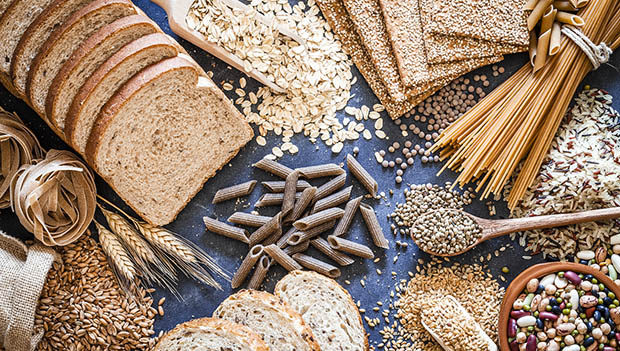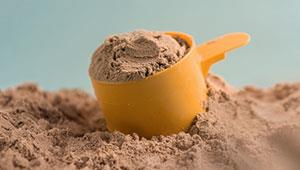
Carb loading has been a long tradition in preparing for an endurance running race. This performance-boosting practice is backed by science and should be part of your pre-race routine.
Muscles can store roughly 400 grams of carbohydrates while the liver stores roughly 100 grams. Although your body stores some carbohydrates, depleting these stores should not be the training goal. You want enough to easily pull from and utilize because carbohydrates are the most used (and most efficiently used) energy source by your body during exercise. When exercising at 65 percent of VO2Max, carbs account for about half of energy being used, which raises two-thirds when intensities increase to 85 percent of VO2Max. When racing, you are at the upper limit of that VO2Max and therefore relying heavily on carbohydrate utilization. The more fatigued the body becomes from training, the less it pulls from stored carbohydrates, and exogenous carbohydrates become increasingly vital to performance.
Quick Tip
A short, two-day window has been shown to be the most effective. In the past, week-long carb loads were common; however, this leads to an overly sluggish body come race day. Another past practice was to consume a period of very low carb consumption followed by a period of high carb eating. This was thought to allow the body to store extra carbs but has actually been proven to be ineffective and more stressful for the runner. Before your next race, count backwards 48 hours and start upping your carbohydrate intake at that point.
In addition to when you start your load, what foods you choose are also important. During this load, protein and fat should be minimized and easy-to-digest carbohydrates should be highlighted. This sounds simple, but many runners get it wrong. Complex carbohydrates like whole grains and vegetables are very nutritious but contain a lot of bulk and fiber that can cause bloating and digestive issues. These should be limited during your 48 carb load. Common 'carb' choices like donuts, croissants and pizza actually have a good amount of fat and protein. These mixed foods should be traded in for foods that have a higher carbohydrate percentage, such as pretzels, juice, white rice, bananas, pasta with tomato sauce or bagels. During your marathon training, you might require 5 to 7 grams of carbohydrate per kilogram of body weight. However, your load will only be effective if consuming 10 to 12 grams per kilogram per day. Tracking your intake will help ensure you're hitting those targets. It also helps to eat small meals throughout the day and add extra carbs (like a glass of juice with meals, a drizzle honey or maple syrup on things or adding an extra portion of pasta or rice) with your meals.
Before going into race day, test your carb loading plan before a long training run. This will help you nail down the routine, take away the stress of the final pre-race days and get your body used to how a carb load feels under longer distances. Consuming extra carbs requires extra water to digest, which leads to the feeling of weight gain. This is temporary and ensures that the body has enough on which to run for miles. If you have more concerns about how to get the most out of your carbohydrate load, reach out to a board-certified sports dietitian who specializes in endurance running.
READ THIS NEXT: 5 Reasons Why You Should Eat the Damn Carbs
Get ACTIVE on the Go


Couch to 5K®
The best way to get new runners off the couch and across the finish line of their first 5K.
Available for iOS | Android







Discuss This Article